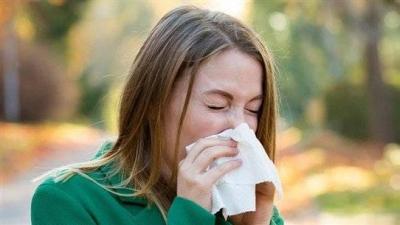Data from the largest healthcare provider in New York has indicated that it is very difficult to suffer from severe illness due to "COVID-19" if you are under 60 years old, have received your vaccinations against the virus, and do not have underlying health issues. This data, published by CNN, comes alongside the announcement of a government plan easing COVID-19 preventive measures this week. Dr. William Schaffner, a vaccine advisor at the U.S. Centers for Disease Control and Prevention (CDC), stated that if you are young, healthy, and vaccinated, "you will be in a very good position... and will have good protection."
Data from Northwell Health shows that among nearly 2,000 people hospitalized during May, June, and July, about 80% were over the age of 60, and around 90% of them had underlying health problems, such as hypertension or diabetes. This summer, the Omicron variant has led to an increase in infection rates. Given that the symptoms of "Omicron" are milder and a significant portion of the population has been vaccinated or previously infected, the hospitalization rate remains lower than before.
Dr. Jill Kalman, Chief Medical Officer at Northwell, clarified that when COVID-19 patients end up in the hospital, their condition is much better than it was previously. She noted, "The mortality rate has become very low... currently about 2%, while it used to range from 10% to 12% during the delta variant surge." She added, "If they enter the intensive care unit, they won't stay long... in the first wave, we were seeing patients in the ICU for 15, 20, or 30 days."
CNN shared the data with Dr. Rochelle Walensky, director of the CDC, who stated that it aligns with her recent comments that we are "in a much better place than we were." The CDC announced this week the cessation of social distancing guidelines for the general public and the end of current quarantine measures for those exposed to the virus. Individuals who test positive for COVID-19 should isolate for at least five days and then continue to take precautions, including wearing a suitable mask for an additional five days.
Regarding other measures, the agency has provided some recommendations for high-risk groups, more than it did earlier in the pandemic. For COVID-19 testing, guidelines may vary by group. According to an agency document obtained by CNN, testing is not uniform across all locations. However, testing will be useful in high-risk gathering environments, such as nursing homes.
Schaffner, a member of the CDC Advisory Committee on Immunization Practices, remarked that at this stage of the pandemic, it makes sense to provide more tailored messaging. He continued, "When a patient or someone asks me for advice about COVID-19, the first thing I always say is: Who are you? What is your vaccination history? How old are you? What health issues do you have? Are you caring for someone classified as high risk?"
Northwell's data examined 1,961 patients across 21 hospitals from May 1 to July 31. The data includes individuals hospitalized due to "COVID-19," not those admitted for other reasons who later tested positive for the virus. Schaffner emphasized the importance of knowing how long it has been since the last booster dose for COVID-19, as the effectiveness of mRNA vaccines diminishes over time.




